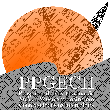Banca de DEFESA: NIVALDO KORIRA'I TAPIRAPÉ
Uma banca de DEFESA de MESTRADO foi cadastrada pelo programa.DISCENTE : NIVALDO KORIRA'I TAPIRAPÉ
DATA : 21/09/2022
HORA: 13:30
LOCAL: Sala Virtual - Meet
TÍTULO:
T A K A R A The House of Apyãwa SapiencePALAVRAS-CHAVES:
Apyãwa-Tapirapé people; Takara; Apyãwa knowledge.
PÁGINAS: 145
GRANDE ÁREA: Outra
ÁREA: Multidisciplinar
RESUMO:
This dissertation aims to investigate the importance of Takara as a central space for vitalization, maintenance and strengthening of the sociocultural epistemology of the Apyãwa people. As the Korako says, “Takãra aoxekato raka’e xanewe Apyãwa ramõ kwewiwe, maryn maryn xane kaãwa ramõ, tarywa rerekaãwa ramõ, xepaanogãwa rerekaãwa ramõ”. ‘Takãra is irreplaceable, essential since its origin for the vitalization of cultural practices, traditional and religious knowledge of the Apyãwa people’. This research brings important reflections so that Takãra can be valued and strengthened even more, providing opportunities for the renewal and intellectual formation of ceremonial leaders of the new generations. In this sense, it is intended to have a greater impact on school discussions, meetings and assemblies, enabling them to be interesting for everyone and especially for Apyãwa youth. With this, we hope that the research will bring more incentive for the continuity of the work developed at the school with the Apyãwa children and young people, supporting the initiative of the millenary sociocultural practices of the community. To carry out this research, we have valuable partnerships with the “living library” of my Apyãwa people, who have a lot of knowledge on the subject, in addition to the bibliographic and ethnographic research of the Apyãwa people – Tapirapé. The main methods used were participation in cultural activities in the villages, school activities, participation in night conversations at Takãra (Casa Ceremonial) and semi-open interviews with elders.
MEMBROS DA BANCA:
Presidente - 86016007 - ADAILTON ALVES DA SILVA
Interno - 535.535.001-15 - EUNICE DIAS DE PAULA -
Interno - 45557013 - JOÃO SEVERINO FILHO
Externo à Instituição - ANDRÉ DE AMARAL TORAL - USP



